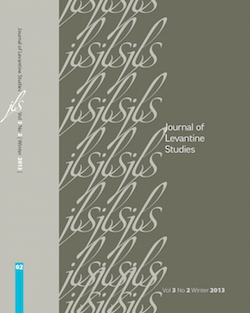The Meaning of “Tolerance,” Which Is the Basis of Modern Civilization
- Description
Product Description
Liberal Tolerance in Arab Political Thought: Translating Farah Antun (1874–1922)
Wael Abu-‘Uksa
- + Translated Text
-
Farah Antun
The following translation is a selection from the debate that occurred in 1902 and 1903 between Muhammad ʿAbdu (1849–1905) and Farah Antun (1874–1922), an Ottoman Orthodox Christian intellectual who emigrated from Tripoli to Egypt. The translated section focuses on the question of tolerance and illustrates both the advent of the liberal concept of tolerance in the Arab-Ottoman intellectual sphere and the reception of its ideational content. - + Analysis by Wael Abu-'Uksa
-
Liberal Tolerance in Arab Political Thought: Translating Farah Antun (1874–1922)
Wael Abu-‘Uksa
Leading figures in the Middle Eastern intellectual milieu have received ample scholarly attention, but not much has been written on the emergence of political concepts in Arab thought. This essay examines the concept of tolerance (tasahul, tasamuh) in the debate between Farah Antun, an Ottoman Orthodox Christian intellectual, and Muhammad ʿAbdu (1849–1905), one of the greatest Muslim reformers of the age. Antun’s perception of tolerance, underpinned by the principles of individualism and secularism, was rejected by Muhammad ʿAbdu, who advocated a conception of tolerance that relies on the Islamic heritage. The temporality reflected in this debate, which took place in 1902–1903, to a large extent manifests the construction of two contested ideologies, Islamism and liberalism. This essay contextualizes the translation that follows, “The Meaning of ‘Tolerance,’ Which Is the Basis of Modern Civilization,” and emphasizes its importance in the history of Arab political thought.
دلالة “التسامح” في أساس الحضارة الحديثة
فرح أنطون
تضم هذه النافذة على ترجمة لنخبة من المناظرة الفكرية التي دارت في السنتين 1902 و 1903 بين محمد عبده (1849-1905) وبين فرح أنطون (1874-1922)، مفكّر مسيحي ينتمي إلى الطائفة الأرثوذكسية الشرقية هاجر من طرابلس لبنان إلى مصر. تركّز هذه النخبة على قضية التسامح واستيراد مفهوم التسامح الليبرالي وموضعته ضمن سياق الفضاء الفكري العربي العثماني واستيعاب مضامينه الفكرية.
משמעות ה”סובלנות”, בסיס הציווליזיציה המודרנית
פראח אנטון
זהו תרגום למבחר קטעים מתוך וויכוח שהתקיים בשנים 1902–1903 בין מוחמד עבדו (1849–1905) לפראח אנטון (1874–1922), ופורסם מעל דפי כתבי העת Al-Jamia ו-Al-Manar. פראח אנטון הוא אינטלקטואל נוצרי אורתודוקסי עות’מאני שהיגר מטריפולי למצרים. הטקסט המתורגם מתמקד בשאלת הסובלנות ומדגים כיצד הובן המושג הליברלי על ידי האליטה הערבית ובמיליֶה האינטלקטואלי הערבי-עות’מאני.
Modern Medeniyetin Temeli Olan “Tesahül” Kavramının Anlamı
Arapçadan tercüme edilmiş olan bu metin, 1902 ile 1903 seneleri arasında Muhammad ʿAbdu (1849–1905) ve Farah Antun (1874–1922) arasında geçen ve al-ʿJamia ve al-Manar dergilerinde yayınlanan tartışmanın bir bölümüdür. Günümüz Lübnanı’ndaki Tripoli’den Mısır’a göç eden Ortodoks Hıristiyan Antun, Osmanlı bir düşünür ve yazardı. İnglizce’ye çevirdiğimiz bu bölüm tesahül kavramını irdeler ve Arap-Osmanlı entelektüel çevrelerinde liberal bir görüş olarak gelişen bu kavramın içeriğini inceler.
- + Abstact in Arabic
-
دلالة “التسامح” في أساس الحضارة الحديثة
فرح أنطون
تضم هذه النافذة على ترجمة لنخبة من المناظرة الفكرية التي دارت في السنتين 1902 و 1903 بين محمد عبده (1849-1905) وبين فرح أنطون (1874-1922)، مفكّر مسيحي ينتمي إلى الطائفة الأرثوذكسية الشرقية هاجر من طرابلس لبنان إلى مصر. تركّز هذه النخبة على قضية التسامح واستيراد مفهوم التسامح الليبرالي وموضعته ضمن سياق الفضاء الفكري العربي العثماني واستيعاب مضامينه الفكرية. - + Abstract in Hebrew
-
משמעות ה”סובלנות”, בסיס הציווליזיציה המודרנית
פראח אנטון
זהו תרגום למבחר קטעים מתוך וויכוח שהתקיים בשנים 1902–1903 בין מוחמד עבדו (1849–1905) לפראח אנטון (1874–1922), ופורסם מעל דפי כתבי העת Al-Jamia ו-Al-Manar. פראח אנטון הוא אינטלקטואל נוצרי אורתודוקסי עות’מאני שהיגר מטריפולי למצרים. הטקסט המתורגם מתמקד בשאלת הסובלנות ומדגים כיצד הובן המושג הליברלי על ידי האליטה הערבית ובמיליֶה האינטלקטואלי הערבי-עות’מאני.
- + Abstract in Turkish
-
Modern Medeniyetin Temeli Olan “Tesahül” Kavramının Anlamı
Arapçadan tercüme edilmiş olan bu metin, 1902 ile 1903 seneleri arasında Muhammad ʿAbdu (1849–1905) ve Farah Antun (1874–1922) arasında geçen ve al-ʿJamia ve al-Manar dergilerinde yayınlanan tartışmanın bir bölümüdür. Günümüz Lübnanı’ndaki Tripoli’den Mısır’a göç eden Ortodoks Hıristiyan Antun, Osmanlı bir düşünür ve yazardı. İnglizce’ye çevirdiğimiz bu bölüm tesahül kavramını irdeler ve Arap-Osmanlı entelektüel çevrelerinde liberal bir görüş olarak gelişen bu kavramın içeriğini inceler.


